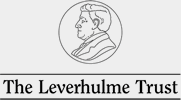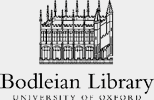Miscellaneous pieces (1752-4)
At the beginning of the eighteenth century, most miscellanies were published in London, but as the century progressed, increasing numbers of booksellers in the provinces were inspired to produce their own miscellaneous collections aimed at local audiences. One such entrepreneur was the Dorsetshire-based newspaper-proprietor, printer, and bookseller Robert Goadby, who published Miscellaneous pieces, consisting of select poetry, and methods of improvement husbandry, gardening, and various other subjects between 1752-1754. As the title suggests, this was truly an eclectic collection, in which verse by authors such as Alexander Pope, John Gay and Thomas Gray sat alongside notes on 'what things chiefly rot sheep' and 'the extraordinary way of hatching chickens, practised in Egypt', advice to gardeners, accounts of volcanic eruptions, and discussions of 'Remarkable Curiosities in Norway'.
This collection was intended to appeal to an aspirational readership keen for self-improvement but with limited time and resources. Goadby presented his miscellany as a useful collection of 'whatever may be useful to improve and enlarge the mind", selected, 'with unwearied Diligence, from the best Books'. Those 'best Books' included Curiosities of nature and art in husbandry and gardening (1707) and The wonders of nature and art, being an account of whatever is most curious and remarkable throughout the world (1750), as well as a range of verse collections. Goadby made his collection affordable to his provincial audience by selling it in instalments: each fortnight, a new section of the book was printed and offered for sale, and over the course of two or so years, readers could gather the parts of this extraordinarily wide-ranging miscellany.
The verse in this collection tends towards educational, moral, and religious themes. There are fables by John Gay and Edward Moore warning against pride, ambition, and a host of other sins; there are odes by Stephen Duck, Elizabeth Carter, and Thomas Parnell in praise of wisdom and contentment; and there is a broad range of religious verse, from biblical paraphrases to dialogues to hymns and prayers, from Alexander Pope, Isaac Watts, John Norris, and Elizabeth (Singer) Rowe. Female poets are rather well represented in this collection, with verse from Katherine Philips and Catherine Jemmat appearing alongside that of Carter and Rowe. Much of the verse was several decades old by the time it appeared in Miscellaneous Pieces, but there are recent works from William Mason and William Whitehead, and one of the most popular poems of recent years, Thomas Gray's 'Elegy in a Country Church Yard', is also included. Most verse appears anonymously, however; authors are identified for only a handful of poems, suggesting that for Goadby, the most important thing was what the poem was about, not who wrote it.
Dr Jennifer Batt, University of Oxford




